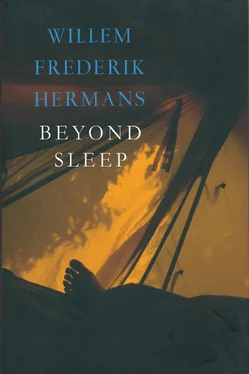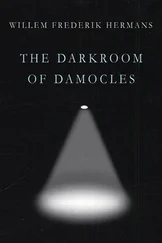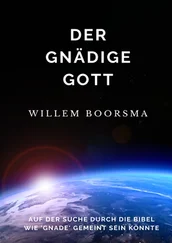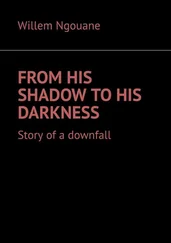I break out in a sweat, constantly brushing mosquitoes from my hands and face. Glancing at Arne, I see that his head is also under attack.
‘I could have got here two days ago,’ I tell him, ‘if I had travelled straight here from Oslo. But I went to see Nummedal, and Nummedal said I should call at the Geological Survey in Trondheim on the way.’
‘Who did you talk to over there? Was it [ unintelligible ]?’
‘Hvalbiff wasn’t there.’
‘[ Unintelligible ] is Nummedal’s sworn enemy.’
‘So I gathered in Trondheim.’
‘It’s Nummedal’s chauvinism that gets to everyone in the end.’
‘Chauvinism? Nummedal did mention …’
‘He talks about it to every foreigner he meets, and goes on and on about his fellow Norwegians’ lack of patriotism.’
‘I did meet some Norwegians who were somewhat apologetic, saying everything was much better in London than in Oslo. But the Dutch attitude to foreigners is the same. I was on a train once and there was this Dutchman showing a Spaniard the Dutch royal coat of arms on his passport. See this? he said. Dutch lion. Now only dog. This was in Spain, mind you. And it took the Dutch an Eighty Years War to get rid of Spanish rule.’
‘Well,’ Arne says, ‘the longest spell of independence for Norway has been the last sixty years. First it was the Danes, then the Swedes. Our language is of no consequence in the rest of the world. Every student has to know English, French and German. Without them you can’t complete a degree. Because of this our own language has sunk to the level of some sort of patois, a medium for apprentices. The most advanced studies are written in foreign languages. The great minds come to us in English by way of English textbooks — a language we can read quite easily, but which we can seldom speak or write without making mistakes. I notice it even now, as I am trying to explain this to you. If I were speaking Norwegian, I could be more subtle, more precise.’
‘I understand you very well.’
‘Still, having to speak a language that is not your own means having to step back, there is no doubt about that. Why do you reckon colonised peoples like Negroes, Indians, and so on have a reputation for being like children? Because they were forced to communicate with their masters in languages they did not know too well.’
‘Don’t any good books get translated into Norwegian?’
‘Of course they do, there are plenty of translations. But you can’t get away from the fact that you’re not reading the real thing. Some people find that depressing.’
‘Depressing? Why? It’s only depressing if you think in terms of nations, and each of those nations wanting to be top dog. But the world is one big conglomerate. You know that.’
‘Know?’ Arne retorts. ‘Yes, I know here ’ — slaps his forehead — ‘but not there .’ He stabs a finger at my chest. ‘And do you know why that is?’
I tell him I have no idea.
‘It’s because deep inside everyone, however sensible, lurks a madman. A raving lunatic, a lunatic who may not be clinically insane but whose condition develops from the same source: from the child we were when we were one, two, three years old. That child, you see, learns only one language. The mother tongue.’
Arne says all these things quietly, not too fast, not too slow, in a clear, even voice. Which is remarkable given that we are going up a steep, sandy incline. No huffing and puffing from him, and yet he is climbing at the same steady pace as he was walking before.
‘If you’re a small country,’ he says, ‘where politics and fashion and films and cars and machines and practically everything else is imported from abroad, and if beyond that practically all essential books, that is to say the books that are right, books that contain the truth, books that are better than most local books, the “founding books” so to speak — if those books are all foreign, then the countries producing them will regard you the same way as colonial powers regard their colonies, and city folk regard the provinces. Colonies and provinces, they’re on a similar plane — not up to date, unsophisticated, always getting the wrong end of the stick, ignorant, backward, and so on.’
We have now reached the top of the sandy rise, where we join another road, unmetalled, but nevertheless a main road. Modest timber bungalows stand among the trees on either side. There are no gates and no fenced-off properties.
A little girl on a tricycle rides alongside us for a time, not using the pedals but pushing herself along with her feet. She calls out to a boy launching a toy glider in the air with a catapult. The glider gets caught in the top of a spruce.
‘What did she say?’ I ask.
‘She said “watch out!” But children don’t listen to what other children tell them. Children are more likely to believe their fathers than someone their own age. We do the same, we’re always more inclined to believe a foreigner than a Norwegian, even if the Norwegian knows what he’s talking about. Whenever someone comes up with a new idea here in Norway, people say it can’t be any good because it hasn’t been written about in American books. But if an American makes some nonsensical claim and a Norwegian contradicts it, they say: What does he know? He’s from the sticks! Let him go to America for a year! In a small country it’s always the copycats who get the acclaim. That applies on all levels. Now that Ibsen and Strindberg are dead, everyone is convinced they were the greatest writers Scandinavia ever had. But not when they were alive! Any old woodcutter qualified for the Nobel prize … but Ibsen and Strindberg never got it!’
Arne halts.
‘This is the house,’ he says, ‘mind you don’t step on the grass. Grass is a rare plant as far north as this, so people are very careful with it.’
A screen door twangs shut behind us.
‘The owners are away in Olso. They have lent me the house.’
Arne puts my suitcase down in the middle of the living room. I unload my rucksack and clap my hands to my cheeks, swatting the mosquitoes that followed us inside. Arne takes a spray can from the mantelpiece, and a mist released by the pressure of his index finger spreads a smell of camphor.
It is clear that Arne is using this place to camp in. This is no exaggeration: he has turned the living room into his first bivouac. The furniture has been pushed back to the wall. On the floor lie a tent, tent poles, a half-packed rucksack, a folding spade, boxes of knäckebröd, tinned food, a theodolite and a hefty wooden tripod with adjustable legs.
I stoop to pick something up.
‘What’s this?’
‘A fishing net. To catch fish on the way. Otherwise we won’t have enough to eat.’
‘What about the horse? Did you have any luck hiring a horse to take our gear to the first camp?’
‘Not yet. Maybe later. We’ll see how we get on in Skoganvarre.’
The net is one metre wide by fifteen metres long, coarse-meshed and made of pale blue nylon. There are corks attached along one side, and little weights along the other.
‘How is this used? Do you drag it through the water?’
‘No, you just let it hang upright. The fishes get their gills caught in the mesh.’
I open my suitcase, take out a pair of corduroy trousers, thick woollen socks, a dark blue cotton shirt, my hiking shoes, a jumper and a windproof jacket with a zip.
I take off my tie, shoes, grey flannel trousers, nylon socks and shirt. I put on the other clothes. I slip a belt through the loops of the corduroy trousers and attach my compass case to the belt in such a way that it hangs to the right of my stomach. Into my pockets go cigarettes, matches, handkerchief, penknife and the measuring tape I remembered to buy in Tromsø. Before stowing it away I pull it out to arm’s length; fine quality steel tape, two metres long, nice and flexible, white on the side with the markings. Well! Not everything has gone wrong, then! My meeting with Arne has gone exactly according to plan, and I didn’t forget the measuring tape, either!
Читать дальше












